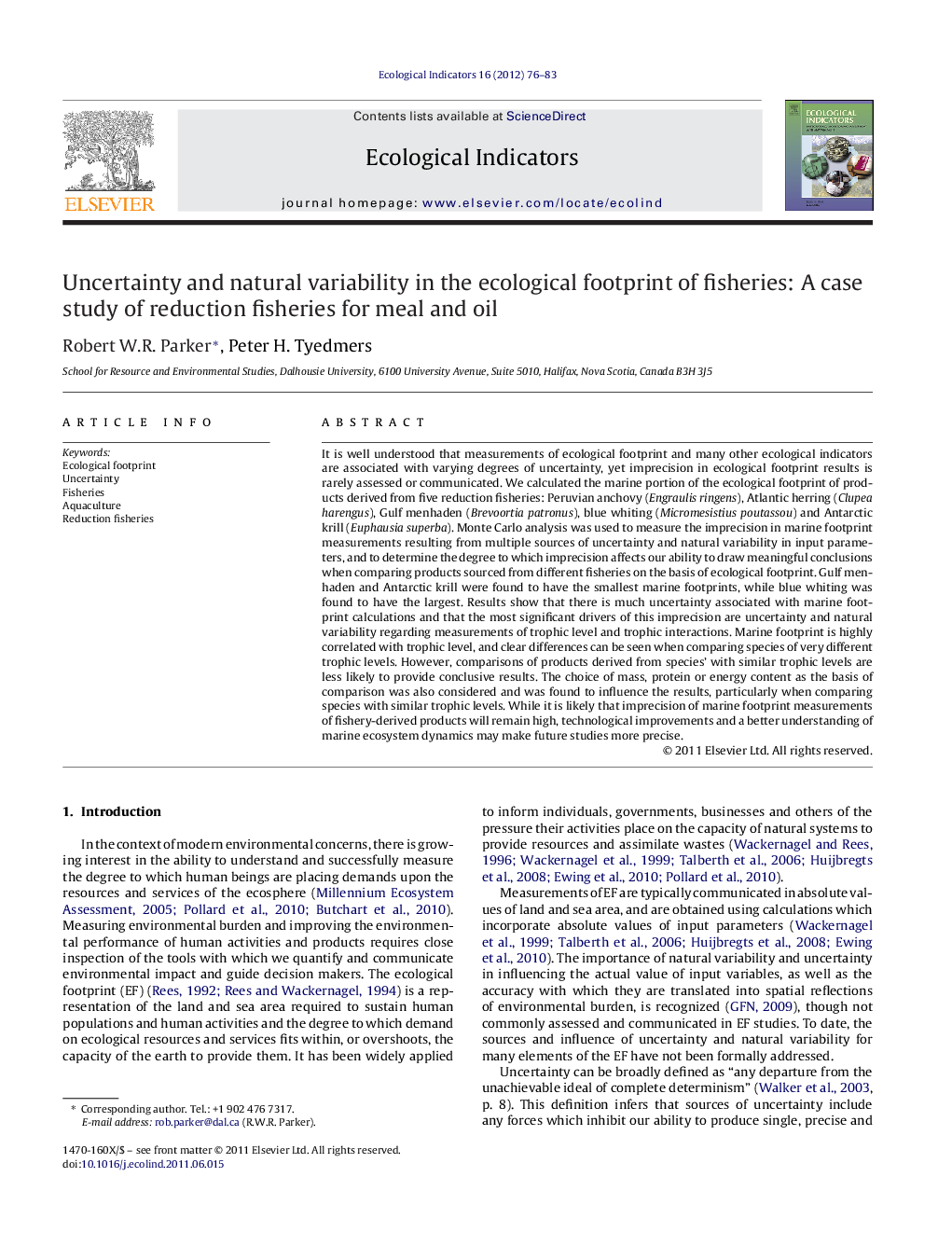| کد مقاله | کد نشریه | سال انتشار | مقاله انگلیسی | نسخه تمام متن |
|---|---|---|---|---|
| 4373953 | 1617184 | 2012 | 8 صفحه PDF | دانلود رایگان |
عنوان انگلیسی مقاله ISI
Uncertainty and natural variability in the ecological footprint of fisheries: A case study of reduction fisheries for meal and oil
دانلود مقاله + سفارش ترجمه
دانلود مقاله ISI انگلیسی
رایگان برای ایرانیان
کلمات کلیدی
موضوعات مرتبط
علوم زیستی و بیوفناوری
علوم کشاورزی و بیولوژیک
بوم شناسی، تکامل، رفتار و سامانه شناسی
پیش نمایش صفحه اول مقاله

چکیده انگلیسی
It is well understood that measurements of ecological footprint and many other ecological indicators are associated with varying degrees of uncertainty, yet imprecision in ecological footprint results is rarely assessed or communicated. We calculated the marine portion of the ecological footprint of products derived from five reduction fisheries: Peruvian anchovy (Engraulis ringens), Atlantic herring (Clupea harengus), Gulf menhaden (Brevoortia patronus), blue whiting (Micromesistius poutassou) and Antarctic krill (Euphausia superba). Monte Carlo analysis was used to measure the imprecision in marine footprint measurements resulting from multiple sources of uncertainty and natural variability in input parameters, and to determine the degree to which imprecision affects our ability to draw meaningful conclusions when comparing products sourced from different fisheries on the basis of ecological footprint. Gulf menhaden and Antarctic krill were found to have the smallest marine footprints, while blue whiting was found to have the largest. Results show that there is much uncertainty associated with marine footprint calculations and that the most significant drivers of this imprecision are uncertainty and natural variability regarding measurements of trophic level and trophic interactions. Marine footprint is highly correlated with trophic level, and clear differences can be seen when comparing species of very different trophic levels. However, comparisons of products derived from species' with similar trophic levels are less likely to provide conclusive results. The choice of mass, protein or energy content as the basis of comparison was also considered and was found to influence the results, particularly when comparing species with similar trophic levels. While it is likely that imprecision of marine footprint measurements of fishery-derived products will remain high, technological improvements and a better understanding of marine ecosystem dynamics may make future studies more precise.
ناشر
Database: Elsevier - ScienceDirect (ساینس دایرکت)
Journal: Ecological Indicators - Volume 16, May 2012, Pages 76-83
Journal: Ecological Indicators - Volume 16, May 2012, Pages 76-83
نویسندگان
Robert W.R. Parker, Peter H. Tyedmers,